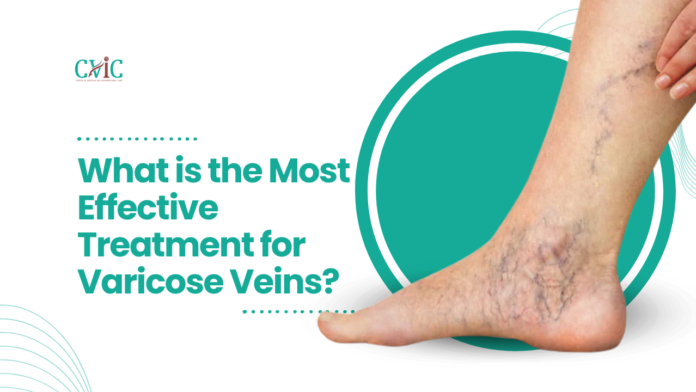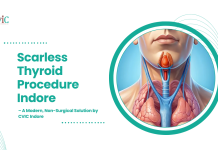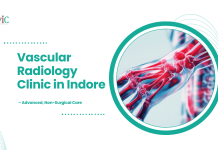Varicose veins are a common condition affecting millions of people worldwide. They occur when veins become enlarged, dilated, and overfilled with blood, often leading to pain, swelling, and discomfort. As more individuals seek solutions to manage and treat varicose veins, medical advancements and natural remedies have made it easier to tackle this issue effectively. But what is the most effective treatment for varicose veins? Let’s explore various medical treatments, home remedies, and lifestyle changes to give you a comprehensive understanding.
Understanding Varicose Veins
Varicose veins, usually found in the legs and feet, result from weakened valves in the veins. These valves are responsible for regulating blood flow back to the heart. When the valves fail to function correctly, blood pools in the veins, causing them to swell and bulge.
Several factors contribute to the development of varicose veins, including:
- Age
- Genetics
- Pregnancy
- Prolonged standing or sitting
- Obesity
- Hormonal changes
Though varicose veins are often seen as a cosmetic issue, they can cause discomfort, pain, and even more serious complications such as ulcers or blood clots if left untreated.
Also Read: Top 7 Best Treatment Options for Aneurysms: Effective Solutions for Better Health

What is the Most Effective Treatment for Varicose Veins?
When it comes to treating varicose veins, several medical and natural options are available. The most effective treatment varies based on the severity of the condition and individual health factors.
1. Sclerotherapy: A Minimally Invasive Solution
Sclerotherapy is one of the most popular and effective treatments for varicose veins, especially for smaller varicose veins or spider veins. During this procedure, a solution is injected into the affected veins, causing them to scar and close off. As a result, blood is rerouted to healthier veins, and the treated veins eventually fade away.
Why is Sclerotherapy Effective?
- Quick outpatient procedure
- Minimal discomfort
- No anesthesia required
- High success rate for smaller veins
However, it may take a few sessions to achieve the desired results. While the veins treated with sclerotherapy typically do not reappear, new varicose veins may develop over time.
Also Read: Understanding Aortic Aneurysm: Causes, Symptoms, and Life-Saving Treatment Options

2. Endovenous Laser Treatment (EVLT): Precision and Efficiency
Endovenous Laser Treatment (EVLT) is a minimally invasive procedure that uses laser energy to seal off larger varicose veins. A laser fiber is inserted into the affected vein, and heat is applied to collapse and close the vein, allowing the blood to reroute to healthier veins.
Benefits of EVLT:
- Local anesthesia
- Minimally invasive
- Effective for larger veins
- Minimal downtime
Patients typically resume their normal activities within a day or two, making this treatment highly effective for those with busy schedules. Additionally, EVLT has a high success rate and a low risk of complications.
3. Radiofrequency Ablation (RFA): A Modern Alternative
Radiofrequency ablation is another minimally invasive technique similar to EVLT but uses radiofrequency energy instead of lasers to heat and close the varicose vein. A catheter is inserted into the vein, and radiofrequency energy is applied to shrink and collapse the vein wall.
Advantages of RFA:
- Similar success rates to EVLT
- Local anesthesia
- Effective for larger veins
- Quick recovery
Radiofrequency ablation is favored for its comfort and effectiveness. As with EVLT, patients can typically return to their routine within a day or two.
Also Read: Top Brain Aneurysm Doctors in Indore: Expert Care for Safe and Effective Treatment

4. Ambulatory Phlebectomy: Surgical Removal of Veins
For more severe cases, ambulatory phlebectomy may be recommended. This surgical procedure involves making small incisions to remove the varicose veins. The procedure is performed under local anesthesia and offers excellent results for large, problematic veins.
Key Benefits:
- Effective for larger, bulging veins
- Immediate results
- Minimal scarring
Though it is slightly more invasive than other treatments, ambulatory phlebectomy is still a relatively minor procedure, with patients often returning to normal activities within a few days.
5. Compression Stockings: Non-Invasive Support
Compression stockings are often the first line of treatment for managing varicose veins, especially in mild cases. These specially designed socks apply pressure to the legs, helping to improve blood flow and reduce swelling.
Advantages of Compression Stockings:
- Non-invasive
- Easily accessible
- Reduces symptoms like swelling and discomfort
While compression stockings do not eliminate varicose veins, they can significantly alleviate symptoms and prevent the condition from worsening. They are often recommended alongside other treatments for optimal results.
6. Home Remedies and Lifestyle Changes
For those with mild varicose veins, lifestyle changes and home remedies can effectively manage symptoms and prevent the condition from worsening. While these methods may not eliminate varicose veins, they can improve overall vein health.
Effective Home Remedies Include:
- Exercise: Regular physical activity, such as walking or swimming, can help improve circulation and reduce symptoms.
- Elevation: Elevating your legs when resting can promote blood flow and reduce swelling.
- Dietary Changes: Consuming a diet rich in fiber and antioxidants can support vein health.
- Herbal Remedies: Horse chestnut extract and grape seed extract are known for their beneficial effects on vein health.
These lifestyle adjustments can be particularly helpful in managing varicose veins in the early stages or preventing them from worsening after medical treatment.
Frequently Asked Questions
Can varicose veins go away without treatment?
While lifestyle changes and compression stockings can alleviate symptoms, varicose veins generally do not disappear without medical treatment.
Is sclerotherapy painful?
Most patients report minimal discomfort during sclerotherapy. The procedure is typically quick and performed without anesthesia.
What is the recovery time for laser treatment for varicose veins?
Patients can usually return to normal activities within 24-48 hours after endovenous laser treatment (EVLT).
Are there any risks associated with varicose vein treatments?
As with any medical procedure, there are some risks involved, such as infection, scarring, or vein recurrence. However, most treatments have low complication rates and are considered safe.
How effective are home remedies for varicose veins?
Home remedies can help manage symptoms and prevent worsening, but they are not a cure for varicose veins. Medical treatments are typically needed for more severe cases.
When should I see a doctor for varicose veins?
You should consult a healthcare professional if you experience pain, swelling, or other complications related to varicose veins, or if they affect your quality of life.
Conclusion
When considering the most effective treatment for varicose veins, it’s essential to consult with a healthcare provider to determine the best option based on your condition. Sclerotherapy, EVLT, and radiofrequency ablation are highly effective treatments for smaller and larger veins, while surgical options like ambulatory phlebectomy offer excellent results for severe cases. Additionally, compression stockings and lifestyle changes can help manage symptoms and prevent progression. With a wide array of treatments available, relief from varicose veins is within reach for everyone.




